Why Do Silver Coins Tarnish?
All silver will tarnish. It’s an unfortunate fact of life. But you would think that the way people talk about it that they had just contracted some terminal illness. So to combat this negative stigma around silver coins becoming tarnished, the coin industry created the term “toning.” And many times, toned coins will cost more than standard “white” coins.
What Exactly Is Tarnish?
Down to the the nitty-gritty. Tarnish is a chemical reaction that occurs when silver comes into contact with humidity and chemicals in the air which causes silver to lose its beautiful luster. When the atoms of silver come into contact with oxygen, a layer of silver oxide is created as a protective barrier – much like rust. However, unlike rust, silver tarnish is self-limiting and the underlying layers are not affected by the outer layers of tarnish. This not only happens to silver, but also happens to copper, aluminum, brass and other similar, soft metals. Tarnishing is simply the product of oxidation.
Tarnish vs. Toning
When strictly speaking about tarnish on coins, the term “toning” is the preferred vernacular. Toning on coins is sometimes a desirable trait that is all subjective. We’ve all heard the term “Beauty is in the eye of the beholder.” That term could never be more apparent than when it concerns coins. Some people prefer crisp, pristine, “white” silver coins. However, some people love the beauty of rainbow-toned silver Morgan Dollars.
Rainbow toning in Morgan Dollars is more common than in other silver coins. This is because many coins were stored in U.S. Treasury vaults in canvas bags for decades and in some cases (The Battle Creek and Continental Bank Hoard) for up to a century. The coins that were closest to the canvas were constantly in contact with a tiny concentration of sulfur. Sulfur was used in the bags to prevent rats from chewing through them. The silver in the coins reacted with the sulfur to form a thin layer of silver-sulfide. It is that thin film that refracts the light and creates the beautiful rainbow toning seen on many toned Morgan Dollars.
Can I Remove Tarnish From My Coins?
That depends. In most cases, removing toning from a coin is as simple as dipping it in a jeweluster coin cleaning solution. But be careful because if your coin is left in the solution for too long, it will eat away the finish of the coin, removing the luster. Swish your coin around in the solution for a few seconds and that’s all you should need (be sure to rinse it well afterwards).
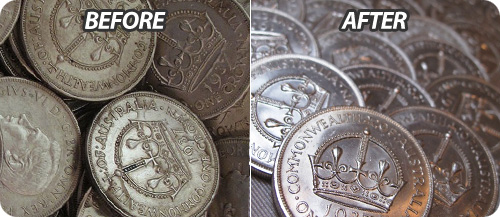
However, there is some toning/tarnishing that is too far gone to salvage the numismatic quality of the coin. This is often displayed as deep black oxidation, and/or pitting on the surface of the coin. At this point, often times the coin is only worth what its metal content is.
How Can I Protect My Coins From Tarnish?
The best way to prevent coins from developing toning is to limit their exposure to the elements. For example, a basement is normally not a good place to store your coin collection because basements often contain higher rates of humidity than compared to the rest of the house. The best way to store your precious metals would be to have them stored in a hermetically sealed chamber (void of any air or gas) and have them not be in contact with any surface (impossible considering we have gravity). However, since this is a near impossibility, you’ll want to store your precious metals with as little contact to the air and elements as possible.
Many people purchase “air-tite” coin holders thinking they’re preventing air from touching their coins, but because there is air all around us, when they enclose their coin in the holder, they don’t realize that air is already present.
Another key factor to be aware of is that many coin dealers will ship individual coins in coin “flips.” A flip is just a plastic sleeve that protects a coin from nicks and scratches. However, some coin flips will cause toning on coins because the plastic contains trace elements that initiate tarnishing. The industry has mainly switched to “non-plasticized” coin flips, but many of these products are made overseas by the cheapest bidder. If toning is a major concern of yours, it would maybe be wise not to store your coins in these non-plasticized flips for long periods of time.






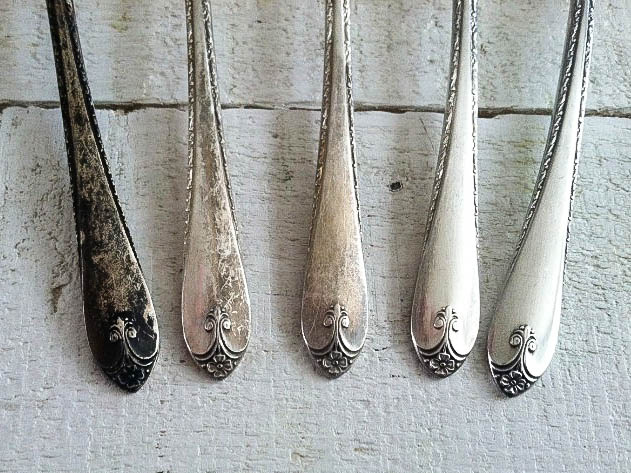
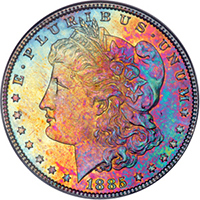
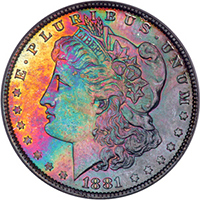
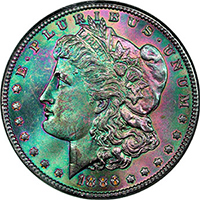

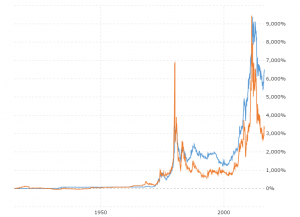

Chris B.
Coin cleaning is usually not recommended. Are you saying that for silver coins, jeweluster coin cleaning solution is really OK if used properly with only light dipping? If so do you have specific product you would recommend?
At what point if any does this cleaning process reduce coin value?
Please advise.
Thanks
James Luksa
At what point?
At any point the value and desirability of the coin is negatively affected. Even your fingerprint will show up years later.
Even sliding your newly bought coin from the coin holder will produce microscopic scratches.
Thanks for the info.I use Tarn-x on my coins and rinse them with water after swabbing them.Seems to work well.
THANK YOU FOR THE INFORMATION. VERY HELPFUL TO UNDERSTAND THIS AREA.
will rubbing them with mineral oil help or hurt them, in the long run and is it advisable?
We don’t usually advise rubbing coins with anything as this can be considered an abrasive and could possibly scratch the coin. If you MUST attempt to clean a coin (read that as “last resort), a quick swishing around in a cleaning solution like E*Z*EST Coin Cleaner could do the trick. We don’t recommend a prolonged period in the solution (under 10 seconds) or rubbing or scrubbing the coin with any abrasives.
I’ve had my silver coins for 30 or more years they have never tarnished untill I moved to another place same state just 25 miles away now they’er tarnishing I dont know what to do about . Has this ever happen to anyone . ?
Wanda,
Did you move somewhere with a well, perhaps with very sulfurous water? I knew of house not far from me that had so much sulfur in their well water that the sulfur volatiles in the air would tarnish clean silver wear in just days.
-Paul
This article is not completely correct. Its probably not the Silver Oxide, but the Silver Sulfide which forms on the external layer. To answer your question, since the difference in the room comes not with different oxygen content. It must be that in the new place there is some more sulphur in the air.
Possibilities; There is more cooking in the room (Garlic) or you live closer to the sea.. (The smell of the sea is a sulfur compound!)
Goodluck!
I am collecting coins! I love this hobby sooo much. Cleaning them is the most important thing. I am so happy I have found your article! Greetings!
1. will everclear on silver coin to prohibit tarnish devalue 90 year old coin?
LOL
While most of the people in the U.S. did not grow up with a butler who polished the silver once each month, it is not surprising most of us do not know about silver handling and safe polishes.
The worst chemical for fine silver (99% and up) is Tarnx. It will pit the silver leaving microscopic pockmarks that will eventually turn black and cannot be buffed out.
If you must polish your silver coins use 3M™ Tarni-Shield Silver Polish or Twinkle Silver Polish; I use the latter. These are polishes used by fine silversmiths. Also, this is the 21st century and we do not need to polish silver any longer. There are fabrics embedded with particles of silver that absorb the oxygen and humidity and keep the silver from tarnishing. The best manufacturer that I use is Pacific Silvercloth. There are cheap knock-offs from China and other places that do not work as well. I use these guys for all my sterling silver as well as coins that tarnish and have never had a problem. I use the zipper bags that are inexpensive and last for 40 to 50 years and then need to be replaced.
Not polishing silver is the best way to enjoy silver. Cheers
Correction to consider. Silver tarnish is silver sulfide not silver oxide. Silver sulfide is an extremely hard salt of silver. Tarn-X and E-Z-Est silver cleaners work by etching the silver sulfide, as well as the silver, with sulfuric acid and hold the silver in solution in thiourea. Thus, when you are cleaning silver with these cleaners you will get the formation of hydrogen sulfide or H2S which has a rotten egg smell.